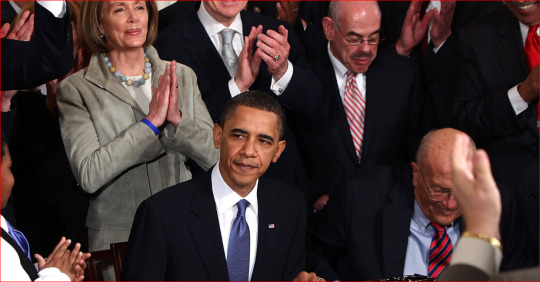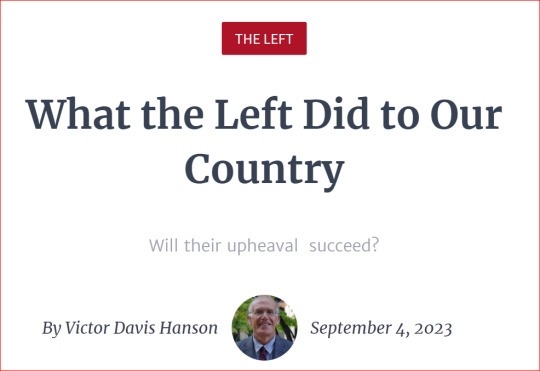#National Socialist Rebels
Note
how is isis different from hamas?
Gonna make it easy and comprehensible:
ISIS or DA'ISH is a transnational terror organization consisting of Iraqi Baathists, former Syrian rebels or moderates, recruited fighters from all over the world, former US captives in Iraq, and oppressed and disenfranchised Sunnis. Wahhabi in nature, ISIS subscribes to the literalist tradition of Islam, based on a strict adherence to Tawhid (Islamic monotheism), rejecting the concept of intercession and saint venerations, seeing them as an act of idolatry. Their religious verdicts are based on the literal interpretation of the Qur'an and Sunnah, rejecting metaphorical exegesis. They aim to establish a global caliphate, seeking to eliminate anyone who opposses it regardless of religious or ideological differences. They see their cause as a hastening of various Islamic end time prophecies in their interpretation of Islamic eschatology. Like many Salafis, they reject Taqlid, which is to conform to one of the four schools of thought in Sunni Islam. On top of that, they reject religious innovations (Bid'ah), which is the idea that anything introduced to the religion without any religious basis is heresy. Whether it be practical or theological, they deem any Muslim who engage in Bid'ah to be an apostate or heretic. They are notorious for their intolerance of non-Muslims and application of Takfirism (excommunication) on Muslims, whether Sunni or Shi'a. Christians had to pay the Jizya (poll tax) in their territories, while in other cases, they were murdered, expelled and had their churches destroyed or converted. They have no tolerance for Shi'a Muslims and will kill them on the spot (see: Speicher Massacre), and have often targeted them with IEDs or suicide bombers. Non-Muslims, like the Ezidis or Ahlul Haqq, were often subjected to execution whereas their women and children were either married away, converted or used as sex slaves. DAESH is not interested in national liberation, seeing it as a blasphemous innovation. DAESH does not consider Hamas to be Muslims due to struggle for national liberation which is supported by Iran and various Shi'i proxies.
Hamas is a political and military resistance group that consists of Palestinians. After the failures of the Oslo accord, Hamas broke away from PLO and formed their own political party. They either subscribe to the Shafi'i school of thought or some form of Ikhwani Salafism (Salafism as envisioned by the Muslim Brotherhood). They're a semi-governmental power in Gaza and are responsible for upholding the social and civil institutions, such as hospitals, schools and etc. Hamas' specific aim is localized and seeks to destroy the Zionist entity in order to form a one-state solution under an Islamic emirate or Islamic democracy. Their only enemy is Israel and any of its allies. As of the Hamas charter of 2017, they do not have an intolerance for non-Muslims or people of different religious and ideological comportments, as seen by them holding ties with both Shi'a and Socialist militias, such as Hezbollah and the PFLP/DFLP. Hamas is concerned with the national liberation of Palestine and the Palestinians. Being an entirely localized resistance group, they do not engage in global jihadism like ISIS nor do they carry out attacks internationally.
4K notes
·
View notes
Text



In the last 20 years, the Left has boasted that it has gained control of most of America institutions of power and influence—the corporate boardroom, media, Silicon Valley, Wall Street, the administrative state, academia, foundations, social media, entertainment, professional sports, and Hollywood.
With such support, between 2009-17, Barack Obama was empowered to transform the Democratic Party from its middle-class roots and class concerns into the party of the bicoastal rich and subsidized poor—obsessions with big money, race, a new intolerant green religion, and dividing the country into a binary of oppressors and oppressed.
The Obamas entered the presidency spouting the usual leftwing boilerplate (“spread the wealth,” “just downright mean country,” “get in their face,” “first time I’ve been proud of my country”) as upper-middle-class, former community activists, hurt that their genius and talents had not yet been sufficiently monetized.
After getting elected through temporarily pivoting to racial ecumenicalism and pseudo-calls for unity, they reverted to form and governed by dividing the country. And then the two left the White House as soon-to-be mansion living, mega-rich elites, cashing in on the fears they had inculcated over the prior eight years.
To push through the accompanying unpopular agendas of an open border, mandatory wind and solar energy, racial essentialism, and the weaponization of the state, Obama had begun demonizing his opponents and the country in general: America was an unexceptional place. Cops were racist. “Clingers” of the Midwest were hopelessly ignorant and prejudiced. Only fundamental socialist transformation could salvage a historically oppressive, immoral, and racist nation.
The people finally rebelled at such preposterousness. Obama lost his party some 1,400 local and state offices during his tenure, along with both houses of Congress. His presidency was characterized by his own polarizing mediocrity. His one legacy was Obamacare, the veritable destruction of the entire system of a once workable health insurance, of the hallowed doctor-patient relationship, and of former easy access to competent specialists.
Yet Obama’s unfufilled ambitions set the stage for the Biden administration—staffed heavily with Obama veterans—to complete the revolutionary transformation of the Democratic Party and country.
It was ironic that while Obama was acknowledged as young and charismatic, nonetheless a cognitively challenged, past plagiarist, fabulist, and utterly corrupt Joe Biden was far more effective in ramming through a socialist woke agenda and altering the very way Americans vote and conduct their legal system.
Stranger still, Biden accomplished this subversion of traditional America while debilitated and often mentally inert—along with being mired in a bribery and influence-peddling scandal that may ultimately confirm that he easily was the most corrupt president to hold office in U.S. history.
How was all this possible?
Covid had allowed the unwell Biden to run a surrogate campaign from his basement as he outsourced his politicking to a corrupt media.
Senility proved a godsend for Biden. His cognitive disabilities masked his newfound radicalism and long-accustomed incompetence. Unlike his past failed campaigns, the lockdowns allowed Biden to be rarely seen or heard—and thus as much liked in the abstract as he had previously been disliked in the concrete.
His handlers, the Obamas, and the Bernie Sanders and Elizabeth Warren radical Democrats, saw Biden’s half-century pretense as a gladhander—good ole Joe Biden from Scranton—as the perfect delivery system to funnel their own otherwise-unpopular leftwing agendas. In sum, via the listless Biden, they sought to change the very way America used to work.
And what a revolution Biden’s puppeteers have unleashed in less than three years.
They launched a base attack on the American legal system. Supreme Court judges are libeled, their houses swarmed, and their lives threatened with impunity. The Left promised to pack the court or to ignore any decision it resents. The media runs hit pieces on any conservative justice deemed too influential. The prior Senate Minority Leader Chuck Schumer whipped up a mob outside the court’s doors, and threatened two justices by name. As Schumer presciently put it, they would soon “reap the whirlwind” of what they supposedly had sowed and thus would have no idea what was about to “hit” them.
Under the pretense of Covid fears, balloting went from 70 percent participation on election day in most states to a mere 30 percent. Yet the rates of properly rejected illegal or improper ballots often dived by a magnitude of ten.
Assaults now followed on hallowed processes, laws, customs, and institutions—the Senate filibuster, the 50-state union, the Electoral College, the nine-justice Supreme Court, Election Day, and voter IDs.
Under Biden, the revolution had institutionalized first-term impeachment, the trial of an ex-president while a private citizen, and the indictment of a chief political rival and ex-president on trumped up charges by local and federal prosecutors—all to destroy a political rival and alter the 2024 election cycle.
Biden destroyed the southern border—literally. Eight million entered illegally—no background checks, no green cards, no proof of vaccinations. America will be dealing with the consequences for decades. Mexico was delighted, receiving some $60 million in annual remittances, while the cartels were empowered to ship enough fentanyl to kill 100,000 Americans a year.
“Modern monetary theory,” the Leftist absurdity that printing money ensures prosperity, followed. It has nearly bankrupted the country, unleashed wild inflation, and resulted in the highest interest rates in a quarter-century. Middle-class wages fell further behind as a doddering Biden praised his disastrous “Bidenomics.”
Biden warred on fossil fuels, cancelling federal leases and pipelines, jawboning lending agencies to defund fracking, demonizing state-of-the-art, clean-burning cars, and putting vast areas of oil- and gas-rich federals lands off-limits to drilling.
When gas prices predictably doubled under Biden and the 2022 midterms approached, he tried temporarily to lease out a few new fields, to drain the Strategic Petroleum Reserve, and to beg the Saudis, and our enemies, the Iranians, the Venezuelans, and the Russians, to pump more oil and gas that Biden himself would not. All this was a pathetic ruse to temporarily lower gas prices before the mid-term elections.
Biden abandoned Afghanistan, leaving the largest trove of military equipment behind in U.S. military history, along with thousands of loyal Afghans and pro-American contractors.
Biden insulted the parents of the 13 Marines blown up in this worst U.S. military debacle since Pearl Harbor. He lied to the parents of the dead that he too lost a son in the Iraq war, and when among them later impatiently checked his watch as he seemed bored with the commemoration of the fallen—and made no effort to hide his sense that the ceremony was tedious to him.
Vladimir Putin summed up the Afghan debacle—and Biden’s nonchalant remark that he wouldn’t react strongly to a “minor” invasion of Ukraine if it were minor—as a green light to invade Ukraine.
When Biden did awaken, his first reaction was an offer to fly the Ukrainian president Volodymyr Zelenskyy out of the country as soon as possible. What has followed proved the greatest European killing ground since the 1944-45 Battle of the Bulge, albeit one that has now fossilized into a Verdun-like quagmire that is draining American military supply stocks and killing a half-million Ukrainians and Russians.
Suddenly, there are three genders, not two. Women’s sports have been wrecked by biological men competing as women, destroying a half-century of female athletic achievement. Young girls in locker rooms, co-eds in sororities, and women in prison must dress and shower with biological men transitioning to women by assertion.
There is no longer a commitment to free speech. The American Civil Liberties Union is a woke, intolerant group trying to ban free expression under the pretense of fighting “hate” speech and “disinformation.”
The Left has revived McCarthyite loyal oaths straight out of the 1950s, forcing professors, job applicants, and students applying for college to pledge their commitment to “diversity” as a requisite for hiring, admittance, or promotion. Diversity is our era’s version of the Jacobins’ “Cult of Reason.”
Race relations hit a 50-year nadir. Joe Biden has a long history of racist insults and putdowns. And now as apparent penance, he has reinvented himself as a reverse racial provocateur, spouting nonsense about white supremacy, exploiting shootings or hyping racial tensions to ensure that an increasingly disgusted black electorate does not leave the new Democratic Party.
The military has adopted wokeism, oblivious that it has eroded meritocracy in the ranks and slashed military recruitment. It is underfunded, wracked by internal suspicion, loss of morale and ginned up racial and gender animosity. Its supply stocks are drained. Arms productions is snail-like, and generalship is seen as a revolving door to corporate defense contractor board riches.
Big-city Democratic district attorneys subverted the criminal justice system, destroyed law enforcement deterrence, and unleashed a record crime wave. Did they wish to create anarchy as protest against the normal, or were they Jokerist nihilists who delighted in sowing ruin for ruin’s sake?
Radical racial activists, with Democrat endorsement, demand polarizing racial reparations. The louder the demands, the quieter they remain about smash-and-grab looting, carjacking, and the swarming of malls by disproportionally black teens—even as black-on-black urban murders reach record proportions.
In response, Biden tried to exploit the growing tensions by spouting lies that “white supremacy” and “white privilege” fuel such racial unrest—even as his ill-gotten gains, past record of racist demagoguery and resulting lucre and mansions appear the epitome of his own so-called white privilege.
This litany of disasters could be vastly expanded, but more interesting is the why of it all?
What we are witnessing seems to be utter nihilism. The border is not porous but nonexistent. Mass looting and carjackings are not poorly punished, but simply exempt from all and any consequences. Our downtowns are reduced to a Hobbesian “war of all against all,” where the strong dictate to the weak and the latter adjust as they must. The streets of our major cities in just a few years have become precivilizational—there are more human feces on the sidewalks of San Francisco than were in the gutters of Medieval London.
The FBI and DOJ are not simply wayward and weaponized, but corrupt and renegade. Apparently the perquisite now for an FBI director is the ability either to lie while under oath or better to mask such lying by claiming amnesia or ignorance.
Immigration is akin to the vast unchecked influxes of the late Roman Empire across the Danube and Rhine that helped to finish off a millennium-old civilization that had lost all confidence in its culture and thus had no need for borders.
In other words, the revolution is not so much political as anarchist. Nothing escapes it—not ceiling fans, not natural gas cooktops, not parents at school board meetings, not Christian bakeries, not champion female swimmers, not dutiful policemen, not hard-working oil drillers, not privates and corporals in the armed forces, not teens applying on their merits to college, not anyone, anywhere, anytime.
The operating principle is either to allow or to engineer things to become so atrocious in everyday American life—the inability to afford food and fuel, the inability to walk safely in daylight in our major cities, the inability to afford to drive as one pleases, the inability to obtain or pay back a high interest loan—that the government can absorb the private sector and begin regimenting the masses along elite dictates. The more the people tire of the leftist agenda, the more its architects furiously seek to implement it, hoping that their institutional and cultural control can do what ballots cannot.
We could variously characterize their efforts as destroying the nation to save it, or burning it down to start over, or fundamentally transforming America into something never envisioned by the Founders.
Will their upheaval succeed? All the levers of the power and money are on the side of the revolutionaries. The people are not. And they are starting to wake to the notion if they do not stop the madness in their midst they very soon won’t have a country.

A perfect metaphor for what the progressives have done to America.
356 notes
·
View notes
Text
Europe’s center of political gravity is veering to the right.
Center-right and far-right parties are set to take the largest number of seats in Sunday’s European Union election in the most populous nations: Germany, France, Italy, Spain and Poland.
France led the rightward lurch with such a crushing victory for the far-right National Rally that liberal President Emmanuel Macron dissolved France’s parliament and called an early election. Early results suggested the National Rally would win some 32 percent of the vote, more than twice that of the president’s party.
“The president of the Republic cannot remain deaf to the message sent this evening by the people of France,” National Rally’s President Jordan Bardella told his supporters at the Parc Floral in Paris.
In Germany, the center-right is cruising to a comfortable victory, with the far-right Alternative for Germany (AfD) coming second and beating Chancellor Olaf Scholz’s Socialists into third place.
Voters across 27 nations have voted over the past week to select 720 members of the European Parliament, who will serve over the next five years. Their first main role with be to approve or reject the main candidate for Europe’s top job: president of the European Commission.
In a Continent that has sought to exorcise the ghosts of fascism for eight decades, the scale of the presence of far-right will be one of the hottest topics of conversation.
Even though they are highly unlikely to be able to coordinate as a unified group inside the European Parliament — thanks to divisions on topics such as Russia — they will still be able to influence the overall direction of the EU, on everything from immigration to climate policies.
Collected together, the radical right parties would theoretically represent the second biggest bloc in the Parliament — being on track to come first in France and Italy, and second in Germany, the three biggest and most important countries in the 27-nation bloc. In Italy, Giorgia Meloni’s right-wing party secured the most support, projected to be about 28 percent.
The far-right is also expected to win in Hungary, and picked up five more seats in the Netherlands. The center-right was comfortably first in Greece and Bulgaria.
The single most ominous warning signal for the future of the EU is France, given the scale of the far right’s win over Macron. All eyes will now be on whether France’s populist wave can maintain its momentum through the impending parliamentary elections and on to presidential elections in 2027 — where a victory for far-right leader Marine Le Pen would threaten to throw the whole EU into turmoil.
The official winner of the evening looks set to be European Commission President Ursula von der Leyen whose center-right European People’s Party will still make up the single-biggest bloc in Parliament.
With early projections showing the EPP will secure about 181 out of the 720 seats in Parliament, the center right will be the dominant force but can hardly govern alone as it will be miles from an absolute majority in the chamber.
The main challenge for von der Leyen in the coming days and weeks will be whether she can strike a deal with the traditional centrist parties — the socialists and liberals — to build a majority of 361 or more in the Parliament.
“Today is a good day for [the] EPP. We won the European elections, my friends. We are the strongest party, we are the anchor of stability … Together with others we will build a bastion against the extremes from the left and from the right. We will stop them!”
Her supporters replied with chants of “Five more years.”
In all, the three big center groups look set to have just over 400 seats. That means von der Leyen’s reapproval will go down to the wire, because she will be rejected if only about 10 percent of lawmakers from the main parties rebel against their party lines. The rebellion rate is normally higher.
This raises a big question of whether she will need to fish around for other allies, ranging from the Greens to Italian Prime Minister Giorgia Meloni’s right-wing Brothers of Italy.
Von der Leyen’s center-right is quick to reject the xenophobia and euroskepticism of the far right, but it knows its voters share the same concerns on the cost of living, migration and a sense that Europe’s traditional core businesses — manufacturing and farming — are being strangled by green regulation.
Staking out its ground in the culture war over the EU’s identity, the EPP opened its EU election manifesto with its commitment to Europe’s “Judeo-Christian roots.”


47 notes
·
View notes
Text

Happy birthday, Elizabeth Gurley Flynn! (August 7, 1890)
One of the most prominent women in the socialist movement of the early 20th century, Elizabeth Gurley Flynn was born in Concord, New Hampshire and became a socialist as a teenager. By the age of fifteen she was already giving socialist speeches and by 17 she had become involved in organizing with the Industrial Workers of the World. She participated in the IWW's free speech fights and helped lead the 1912 Lawrence textile strike and the 1913 Paterson silk strike. Her tenacity and dedication to the cause led IWW troubadour Joe Hill to write the song "Rebel Girl" in her honor. Flynn helped to found the American Civil Liberties Union in 1920, and chaired the International Labor Defense from 1927 to 1930. In the 1930s, Flynn became active in the Communist Party of the United States, and quickly rose to its national committee, becoming its chairwoman in 1961. She remained an active and energetic member of the American left until her death in 1964.
"What is a labor victory? I maintain that it is a twofold thing. Workers must gain economic advantage, but they must also gain revolutionary spirit, in order to achieve a complete victory. For workers to gain a few cents more a day, a few minutes less a day, and go back to work with the same psychology, the same attitude toward society is to have achieved a temporary gain and not a lasting victory. For workers to go back with a class-conscious spirit, with an organized and a determined attitude toward society means that even if they have made no economic gain they the possibility of gaining in the future. In other words, a labor victory must be economic must be revolutionizing. Otherwise it is not complete."
227 notes
·
View notes
Text


An SDS radical once wrote, "The issue is never the issue. The issue is always the revolution." In other words, the cause - whether inner city blacks or women - is never the real cause, but only an occasion to advance the real cause which is the accumulation of power to make the revolution.
-- David Horowitz


https://alphahistory.com/chineserevolution/red-guards/
The Cultural Revolution was driven by the Red Guards, a mass movement encouraged and directed by Mao Zedong. They became Mao’s power base as he reinstalled himself as leader of both party and nation while purging the party of his critics and competitors. Comprised mostly of fanatical students, the Red Guards (Hongweibing) began to take shape in June 1966, following the national publication of a student protest in Beijing University. Within weeks they had mobilised into a political militia, their numbers exceeding 10 million. Motivated by Mao’s slogans “It is right to rebel” and “Bombard the headquarters”, the Red Guards attacked anyone and anything they considered a threat to Mao or his socialist vision. Nobody was safe: not bureaucrats or administrators, not party chiefs, not provincial politicians, not even president Liu Shaoqi. For a year these militant students created what Mao himself called a “great chaos under heaven”. When the Red Guards became even more radical and violent in 1967, it was Mao himself who authorised military action to suppress them.
Sound familiar?
Believe them when they tell you what they're up to.
#the issue is never the issue#the issue is the revolution#revolution#red guards#cultural revolution#gaza#palestine#israel#student protests#authoritarianism#woke authoritarianism#fascism#religion is a mental illness
24 notes
·
View notes
Text
In an infamous massacre, one of many, the Israeli connection was clearly present. At the village of Dos Erres on December 6, 1982, Israeli-trained commandos left the village completely burned down, after shooting, torturing, and/or raping over two hundred villagers. A United Nations investigative team reported: “All the ballistic evidence recovered corresponded to bullet fragments from firearms and pods of Galil rifles made in Israel.” This was just in the one village of Dos Erres. The same twelve-volume investigation reports that Israeli-made Galil rifles were used throughout the highlands, while US-made helicopters ferried troops into the highlands for what the report argues were “acts of genocide.”
The main rebel groups were Marxist and Socialist. Israel hates Leftist women and has supported their sexual torture and slavery around the world.
How the Israeli-trained and supplied Guatemalan army abused women-
from
The Guatemala Reader: History, Culture, Politics




17 notes
·
View notes
Note
I’ve seen a lot of kakashi fans saying he was anti-shinobi system and wanted it to changes and all… but I didn’t get this vibe from him at all in the manga? most of the times he’s either shown agreeing with the system, or just not having real opinion on what’s happening… if i had to choose, i would put him more in the "pro-system" category rather than in the "anti-system" category. what do you think about it?
((I hope this makes any sense 🫶 I really wanted to talk about this and the systems, but I’m not going to point out every moment with Kakashi. I think this mostly speaks for itself from a storytelling perspective. Long post 🍵))
Hm’ I can’t really understand the reasoning behind fans saying he was against it? Pro/anti-system doesn’t quite mean the same as pro/anti in fandom language in the context of such systems. Acknowledging the issues and not liking them but simply dealing with it anyway (‘Ninja’ literally is ‘one who endures’) because that’s expected of you as Shinobi, is not the same as actively rebelling against a system. They are soldiers that are trained to not show emotions and they become tools for the village. And the Shinobi system regulates the functioning of itself by stating Shinobi are tools for the country to use however they like.




For Kakashi especially, ‘dealing with it’ meant dealing with it the ‘right way’ despite acknowledging these are issues, right? The way things just are. And the ‘right way’ becomes subjective to each character when you consider that every village operates through what they think is 'right' because the 'right thing' benefits the local community and not the entire world or an individual. Even someone like Zabuza who was seen as a 'heartless monster' wasn't able to truly become emotionless and surely his 'right way' felt justified in regard to his past and what he had to do.
But yeah for sure, overall, I agree.
Just to clarify though;
From my understanding it doesn’t mean much on its own saying a character is in favor of/against the Shinobi system because it isn’t really anything other than an overarching framework for all Shinobi and part of the hierarchal structure of many systems within the Narutoverse. It’s a guideline, practical and operates on a large scale where it provides for different countries to manage coordination or any challenges that may arise but its meaning for a single character is hard to measure. It’s vague.
Konoha has its own military/authoritative system specifically for Shinobi from the leaf (and thus, Kakashi) and to give that any socialistic meaning, it adopts the ideology they call; ‘Will of Fire’ which purpose is to blur your individuality and eventually replace it with a communal mindset which profits on a national scale, or village mostly. I’m not saying there wasn’t any individuality in the characters because they wouldn’t be enjoyable/relatable otherwise; like Kakashi was (very well) known for ‘copying’ and having the Sharingan.

'Hatake Kakashi is a cool man who doesn't risk his life lightly, but now he's putting his life on the line. The 'Spirit of Fire (Will of Fire)' burns within him!!'
And if you view things from this communal mindset that Konoha has then you’re very much in favor of the system... I don’t really see how you can argue against it? Konoha and other countries all interconnect through the Shinobi system, but it is the individual and local ideology that causes so much suffering and are the sources of the story’s conflicts in one way or another. Each micro-system prioritizes their own (unless you're seen as a threat ig) and it promotes loyalty to one’s country through the ideology.
((Like Konoha claiming you become stronger by protecting something that is important to you,

but then indoctrinating everyone that the single thing that is most important ‘to you’ is the village and your ‘comrades’. There’s truth it in it but there is a change in purpose as Naruto’s most important person isn’t even part of the village at some point but a personal connection that he prioritized above the community and national borders. This includes Gaara as well.



In that sense, you could say Naruto is selfish, but in this case that’s a good thing, really well written and has nothing to do with ‘going against Sasuke’s wishes’ weh~’.))
When countries go to war with each other or are in conflict, they will always favor their own (system), not the ‘Shinobi system’ and will chase to profit. It is their responsibility to adapt at all times to make sure it thrives, for better and for worse. And these systems pretty much always come with an ideology and especially military systems are very Nationalistic because its purpose is to protect. Against all costs, it prioritizes itself above all. 'Balancing power' was a way to 'promote friendship' between all countries, but that didn't really work out though, did it?
The WoF influences the character of Konoha’s system and it is through this that we can really measure what the narrative says regarding a character and analyze their (inter)actions. And Kakashi like most other characters very much operates through that (local system’s) ideology.. 🤷🏻♀️ There is nothing that truly indicates that Kakashi is against Konoha’s system much less is ‘rebelling’ or seen to behave in an antagonistic matter as told through the narrative. (Which tells us what is 'good/'bad' but allows you to question it still.) Most criticism Kakashi has against ‘bad’ aligns with the communal ideology that decides what is ‘right’/‘wrong’. That’s exactly why right/wrong and good/bad become incredibly muddy/grey and why it is nearly impossible for Naruto and Sasuke to find a ‘morally right’ answer for all and find peace in the story. Why the sequel probably (partly) didn’t even bother to try. Why the individuality of Naruto and Sasuke as main-characters were pointed out countless of times to indicate their roles which also changed throughout the story and why it became complicated when conflict rises between components within the same system.
I’m just pointing out there is a (huge) difference because you can’t really be anti-system if you’re literally a part of it in every way and operate through those beliefs and values even on a micro-level which is an extension from the overarching Shinobi system. Especially when issue’s are acknowledged at the same time.
((Sasuke was right that in order to force actual change, destroying just Konoha wouldn’t do much in terms of the overarching system. It’d still exist through individual values and Shinobi beliefs and even if all was destroyed physically, most likely it would rebuild the same way like Naruto mentioned unless Sasuke would forever control and keep an eye on the new system which he said was his plan. Kishimoto didn’t just suck that information out of his thumb, it’s based on the way shit works in real life too. Both Naruto and Sasuke wanted balance but offered different solutions. Yes, the Shinobi-system can be seen as the antagonistic force as well and one could oppose the entirety of it for sure, but this is only true for a few characters who’ve done a lot of research first or lived long enough in order to come up with such a conclusion/active decision and are seen as antagonists in turn by everyone else who are in favor of the system as well. But it takes a whole lot more than just wanting change in order to rebel and be anti-system and with that, development that you really shouldn't take lightly.))
But for the sake of efficient storytelling, why you’d even want Kakashi to anti the system in the first place...?
That Kakashi wanted things to change is only natural given his past, but countless of characters wanted things to change or admitted their wrong-doings ‘of the past’ and showed regret in any way. Especially authority mopes for a bit when faced with the consequences, but doesn’t take any accountability that really results in change even if they have the power to do so. Some even blame others. Like the Uchiha are blamed by Danzo for their own massacre??? A good Hokage that leads to lasting change doesn't just do what is currently expected of them and 'die like a hero', but thinks outside the box and is a little unpredictable. Almost has to rebel themselves for a bit which yes, we can finally talk about potential fr- Naruto had potential and it is backed up by Canon :') That's what potential is and not some hc possibility someone came up with on their own. Anyway, especially nearing the end they all start confessing which is kinda funny because a lot of them were already dead (Edo-Tensei) so it’s easy to then dump the responsibility to fix their fuck-ups on the newer generation (namely; Naruto and Sasuke) with a big ‘fuck you tho, but you’ll figure it out, good luck!’ on top.
Or.. you know;


Figuring out what the system meant and finding an answer to change... it was kinda... the whole point of the plot. Each character plays a different role and contrasting viewpoints in a story serve great purposes to tell it. In regard to the system a few are;
Implementing the Theme wherein Naruto and Sasuke are offered (and forced) to find their individuality (outside of their role as Ninja where duty... or fate is decided for you)
Presenting an answer that eventually should’ve led to a change in history which otherwise would’ve just repeated itself (or will again later on)
To show that the current and evolved Shinobi system is the source of most conflicts (especially the large-scale ones) and that the main characters are burdened with this responsibility
The significance of actually questioning, challenging and showing dissatisfaction towards the beliefs and values everyone around you blindly adopted and the impact it has on the characters and the scene which is only possibly through a development that calls for it
Leaving the area of ‘right’/‘wrong’ and ‘good’/‘bad’ very grey in order to make antagonists more powerful and developed, because if the system is the cause of antagonistic behavior, then who is ‘right’ anyway? Is the system itself the antagonistic force or are all the antagonists 'evil'/'bad' by default? :')
Get where I’m going with this? It’s not Kakashi’s role to actively challenge these beliefs. In fact, if everyone who wanted change gained that role, then every single thing Naruto and Sasuke did and decided on would become insignificant. Naruto’s actions would’ve been understood by the people around him and Sasuke would gain sympathy which in real life is great and well-deserved (well, fictional too), but would make a very boring and mediocre story. Even Kakashi pointed out these differences between Naruto/Sasuke and himself many times while looking at the past and contrasting history with, well, namely Naruto and feared a repetition through Sasuke.
It is useful to the Theme that let Naruto and Sasuke explore what their bond/friendship meant, what anything meant really, and find their individuality outside the communal mindset of Konoha and from within. (Naruto’s Ninja way and Sasuke deciding to take matters in his own hands.) This development had meant nothing had Kakashi taught his students to rebel and question the system during their ‘team’mate days because maybe it was something he already believed in or because he operated through a personal philosophy instead of saying 'well, this is what it is, so...'. It would’ve influenced them in some way otherwise there is no reason to add it. But then Naruto and Sasuke’s choices wouldn’t have come from their development journeys or the trauma they lived, but simply because ‘their sensei said so/taught them’. (And sure, they could’ve challenged Kakashi on it, but that’s kinda pointless in this case. People often say Kakashi didn't understand certain things about his students and this all is mostly the source for it.) Much like Hokage-Naruto lamely claiming the village is ‘family’ because ‘the third always said so’. It’s meaningless to him personally. And what would that even mean for Sakura had Kakashi adopted contrasting beliefs? D’ykwim?
Nah' I don't like this system and it definitely needs to change. I'm very impressed in the way Sasuke gathered all this information and then was forced to move towards a single solution which... from his viewpoint then, was the only way until Naruto offered his idea that was only born from his own challenges. I also don't like how characters (including Kakashi) view it and use it as some sort of emotional weapon to manipulate, intentionally or not. Though, I wouldn't want it any different for the sake of the story and I still very much like Kakashi. It is that incredible persistence Naruto and Sasuke showed BECAUSE of that very resistance at every turn that made the story so good and their decision so impactful.
So yes, but no, I don't think it's a bad thing at all.
-

(And yeah, the whole ‘comrade’-thing goes together with it all, though that may need a separate post someday. I really want to talk about the meaning of the words ‘family’, ‘friend’ and ‘comrade’ in Konoha because it doesn’t mean anything anymore if it’s not tied to the individual and it’s communal for a Leaf Shinobi that carries the WoF. And for me personally, the way Kakashi went about it makes sense. Doesn't mean I like it, but it makes sense. Naruto vowed to become a Ninja his own way and found meaning regarding his bonds along his journey while blurring the borders between countries (and systems) while Shikamaru for example, simply decided that his and his team-mate’s lives were okay to risk for the sake of the mission and to ’retrieve Sasuke’ who is only a ‘comrade’ to him because he was a Ninja of Konoha, someone he didn't like on a personal level. And when Sasuke wasn’t a Konoha Ninja, no one but Naruto thought he was worth ‘saving’. That’s why Naruto was also questioning why someone would give up their life for one another after Sasuke did so for him and Hiruzen did for Konoha and Kakashi answered the way he did after Iruka. Why he gave up on Sasuke but died for Choji. You’re simply ‘family’ as a villager of Konoha, but it was Naruto and Sasuke’s role in the story to figure out what personal bonds mean to them.


(I really want to make a separate post on this, I have too many thoughts, but gotta stop rambling ffs.)
18 notes
·
View notes
Text
This day in history

I'm touring my new, nationally bestselling novel The Bezzle! Catch me SATURDAY (Apr 27) in MARIN COUNTY, then Winnipeg (May 2), Calgary (May 3), Vancouver (May 4), and beyond!

#20yrsago Bill O’Reilly mistakes Globe and Mail for Socialist Worker https://web.archive.org/web/20040426005411/http://www.globeandmail.com/servlet/ArticleNews/TPStory/LAC/20040421/DOYLE21/TPColumnists/
#20yrsago Silmarillion in 1,000 words https://web.archive.org/web/20060427200009/https://camwyn.livejournal.com/328358.html
#20yrsago London: The (Magnificent) Biography https://memex.craphound.com/2004/04/22/london-the-magnificent-biography/
#15yrsago UAE royal caught torturing man on video https://abcnews.go.com/Blotter/story?id=7402099
#15yrsago Joe Biden promises a blank check to the entertainment cartel https://web.archive.org/web/20110624055700/http://news.cnet.com/8301-13578_3-10224689-38.html
#15yrsago Entertainment industry’s greedy lobbying is their undoing https://web.archive.org/web/20090425083430/http://www.internetevolution.com/document.asp?doc_id=175415&
#10yrsago Appeals court orders Obama administration to disclose the legal theory for assassination of Americans https://arstechnica.com/tech-policy/2014/04/obama-ordered-to-divulge-legal-basis-for-killing-americans-with-drones/
#10yrsago Shakespeare’s Beehive: analysis of newly discovered dictionary that Shakespeare owned and annotated https://endlessbookshelf.net/beehive.html
#10yrsago Reddit’s /r/technology demoted over scandal of secret censorship that blocked Internet freedom stories https://www.bbc.com/news/technology-27100773
#5yrsago Facebook has hired the Patriot Act’s co-author and “day-to-day manager” to be its new general counsel https://thehill.com/policy/technology/440085-facebook-taps-lawyer-who-helped-write-patriot-act/
#5yrsago Google walkout organizers say they’re being retaliated against for demanding ethical standards https://www.wired.com/story/google-walkout-organizers-say-theyre-facing-retaliation/
#5yrsago Elizabeth Warren’s latest proposal: cancel student debt, make college free https://medium.com/@teamwarren/im-calling-for-something-truly-transformational-universal-free-public-college-and-cancellation-of-a246cd0f910f
#5yrsago Heiress “Instagram influencer” whose parents are accused of paying a $500K bribe to get her into USC has trademark application rejected for punctuation errors https://www.huffpost.com/entry/olivia-jade-trademark-punctuation_n_5c9c8f16e4b07c8866313c5e?ncid=newsltushpmgnews__TheMorningEmail__032919
#5yrsago Zuck turned American classrooms into nonconsensual laboratories for his pet educational theories, and now they’re rebelling https://www.nytimes.com/2019/04/21/technology/silicon-valley-kansas-schools.html
#5yrsago Platform cooperativism (or, how to turn gig-economy jobs into $22.25/hour jobs) https://www.wired.com/story/when-workers-control-gig-economy/
8 notes
·
View notes
Text
https://www.globalresearch.ca/thirdworldization-russian-federation/5867385
The “Thirdworldization” of the Russian Federation. IMF-World Bank Shock Treatment under Boris Yeltsin
By Prof Michel Chossudovsky
Global Research, September 18, 2024
Author’s Note
The following text describes the devastating social and economic impacts of a “Third World style” Neo-liberal agenda applied in the immediate wake of the “Cold War”.
I was in Russia in 1992 undertaking field research as well as interviews for Le Monde diplomatique. What I witnessed was a process of the engineered impoverishment and social devastation.
It was shock and awe macro-economics, IMF economic medicine conducive to a process of economic and social destruction imposed by the Washington Consensus.
There was no peaceful transition. America had Won the Cold War. The USSR collapsed in one fell swoop. It was a complex process of regime change coupled with the imposition of strong economic medicine.
The unspoken post-Cold war agenda was “economic warfare” which consisted in imposing a neocolonial agenda conducive to the dislocation and the demise of the national economies of the former republics of the Soviet Union.
It was regime change, an exceedingly complex process of economic and social dislocation of the Union of Soviet Socialist Republics (USSR)
Michel Chossudovsky, Global Research, September 18, 2024
Phase I: The January 1992 Shock Treatment
“In Russia we are living in a post-war situation. . .”, but there is no post-war reconstruction. “Communism” and the “Evil Empire” have been defeated, yet the Cold War, although officially over, has not quite reached its climax: the heart of the Russian economy is the military-industrial complex and “the G-7 wants to break our high tech industries. (. . .) The objective of the IMF economic program is to weaken us” and prevent the development of a rival capitalist power.[1]
The IMF-style “shock treatment”, initiated in January 1992, precluded from the outset a transition towards “national capitalism” – i.e. a national capitalist economy owned and controlled by a Russian entrepreneurial class and supported, as in other major capitalist nations, by the economic and social policies of the state. For the West, the enemy was not “socialism” but capitalism. How to tame and subdue the polar bear, how to take over the talent, the science, the technology, how to buy out the human capital, how to acquire the intellectual property rights? “If the West thinks that they can transform us into a cheap labor high technology export haven and pay our scientists USS 40 a month, they are grossly mistaken, the people will rebel.”[2]
While narrowly promoting the interests of both Russia’s merchants and the business mafias, the “economic medicine” was killing the patient, destroying the national economy and pushing the system of state enterprises into bankruptcy. Through the deliberate manipulation of market forces, the reforms had defined which sectors of economic activity would be allowed to survive. Official figures pointed to a decline of 27 percent in industrial production during the first year of the reforms; the actual collapse of the Russian economy in 1992 was estimated by some economists to be of the order of 50 percent.[3]
5 notes
·
View notes
Photo

DISSENT MAGAZINE
At critical times, foreign wars have tested the moral convictions of American leftists and affected the fate of their movement for years to come. The Socialist Party’s opposition to entering the First World War provoked furious state repression but later gained a measure of redemption when Americans learned that U.S. troops had not made the world safe for democracy after all. Leftists proved prescient again in the late 1930s when they rallied to defend the Spanish Republic against a right-wing military and its fascist allies, Italy and Germany. The republic’s defeat emboldened Adolf Hitler to launch what quickly became the Second World War. When, twenty years later, American Communists backed the Soviet Union’s crushing of the Hungarian Revolution of 1956, they shoved their party firmly and irrevocably to the margins of political life, which opened up space for the emergence of a New Left that rejected imperial aggressors of all ideological persuasions.
The war in Ukraine has a good chance of turning into another such decisive event. Who to blame for the bloodshed in that country should be obvious: a massive nation led by an authoritarian ruler with one of the world’s largest militaries at his disposal is seeking to conquer and subjugate a smaller and weaker neighbor. In pursuit of that vicious purpose, Vladimir Putin’s soldiers have committed countless rapes and acts of torture. His air force is systematically trying to destroy Ukraine’s infrastructure and economy, hoping to undermine its citizens’ will to resist. Yet Ukrainians, with the aid of arms from the United States and other NATO countries, have so far managed to fight this superior force to a stalemate.
A sizeable number of American leftists have embraced an alternate reality. For them, the culprit is NATO’s post–Cold War expansion, fueled by the drive of the U.S. state and capital to bend the world to their desires. The popular author and journalist Chris Hedges cracks that the war in Ukraine “doesn’t make any geopolitical sense, but it’s good for business.” The Green Party condemns the “perpetual war mentality” of the “US foreign policy establishment” and concludes, “There are no good guys in this crisis.”
These critics ignore or dismiss the fact that every nation that joined NATO did so willingly, knowing that Russia was capable of launching the kind of attack now underway in Ukraine. In the aftermath of the Soviet Union’s demise, the expansion of NATO may well have been too hasty. But not one of its newer members has done anything to threaten Putin’s regime. And every country that joined the alliance enjoys a democratically elected government. They contrast sharply with the handful of nations, besides Putin’s, that voted against a UN resolution last month demanding the Russians withdraw from Ukraine: Belarus, North Korea, Syria, Nicaragua, Eritrea, and Mali. All but the last are one-party dictatorships, and Mali relies on Russian mercenaries to battle Islamist rebels.
It seems not to bother these leftists that they are making common cause with some of the most atrocious and prominent stalwarts of the Trumpian right. Tucker Carlson routinely bashes the U.S. commitment to Ukraine with lines like “Has Putin ever called me a racist?” while Marjorie Taylor Greene recently declared, “I’m completely against the war in Ukraine. . . . You know who’s driving it? It’s America. America needs to stop pushing the war in Ukraine.”
On February 19, some members of the alliance of right and left staged a demonstration at the Lincoln Memorial in Washington to vent its “Rage Against the War Machine.” Speakers included Ron Paul and Tulsi Gabbard as well as Jill Stein, the Green Party’s 2016 nominee for president, and Medea Benjamin, the founder of Code Pink. Carlson promoted the event on the highest rated “news” show in the history of cable TV. At the Memorial, several protesters flew Russian flags.
To paraphrase August Bebel’s famous line about anti-Semitism, the hostility of those leftists who oppose helping Ukraine is an anti-imperialism of fools—although, unlike past Jew haters, they are fools with good intentions. Wars are always horrible events, no matter who starts them or why. And we on the left should do whatever we can to stop them from starting and end them when they do.
But neither the United States nor its allies forced Putin to invade. In speech after speech, he has made clear his mourning for the loss of the Soviet empire and his firm belief that Ukraine should be part of a revived one, this time sanctified by an Orthodox cross instead of the hammer-and-sickle. As the historian (and my cousin) David A. Bell wrote recently, the United States is not “the only international actor that really matters in the current crisis.” It may have the mightiest war machine, but Biden is not shipping arms to Ukraine in an attempt to subjugate Russia to his will. We should, Bell writes, “judge every international situation on its own terms, considering the actions of all parties, and not just the most powerful one. . . . the horrors Putin has already inflicted on Ukraine, and his long-term goals, are strong reasons . . . for continuing current U.S. policy, despite the attendant costs and risks.”
(Continue Reading)
#politics#the left#dissent magazine#foreign policy#war#progressive#progressive movement#Russia#ukraine#NATO#imperialism
57 notes
·
View notes
Text
non-exhaustive list of sources that are imo especially interesting/thought-provoking, just really solid, or otherwise a personal favorite:
MISC
“Leaders and Martyrs: Codreanu, Mosley and José Antonio,” Stephen M. Cullen (1986)
“Bureaucratic Politics in Radical Military Regimes,” Gregory J. Kasza (1987)
A History of Fascism, 1914–1945, Stanley Payne (1996)
The Fascist Revolution: Toward a General Theory of Fascism, George L. Mosse (1999)
Fascism Outside Europe: The European Impulse against Domestic Conditions in the Diffusion of Global Fascism, ed. Stein U. Larsen (2001)
Ancient Religions, Modern Politics: The Islamic Case in Comparative Perspective, Michael Cook (2014)
MARXISM
“Crisis and the Way Out: The Rise of Fascism in Italy and Germany,” Mihály Vajda (1972)
“Austro-Marxist Interpretation of Fascism,” Gerhard Botz (1976)
“Fascism: some common misconceptions,” Noel Ignatin (1978)
“Gramsci’s Interpretation of Fascism,” Walter L. Adamson (1980)
ARGENTINA
“The Ideological Origins of Right and Left Nationalism in Argentina, 1930–43,” Alberto Spektorowski (1994)
“The Making of an Argentine Fascist. Leopoldo Lugones: From Revolutionary Left to Radical Nationalism,” Alberto Spektorowski (1996)
“Argentine Nacionalismo before Perón: The Case of the Alianza de la Juventud Nacionalista, 1937–c. 1943,” Marcus Klein (2001)
BRAZIL
“Tenentismo in the Brazilian Revolution of 1930,” John D. Wirth (1964)
“Ação Integralista Brasileira: Fascism in Brazil, 1932–1938,” Stanley E. Hilton (1972)
“Integralism and the Brazilian Catholic Church,” Margaret Todaro Williams (1974)
“Ideology and Diplomacy: Italian Fascism and Brazil (1935–1938),” Ricardo Silva Seitenfus (1984)
“The corporatist thought in Miguel Reale: readings of Italian fascism in Brazilian integralismo,” João Fábio Bertonha (2013)
CHILE
“Corporatism and Functionalism in Modern Chilean Politics,” Paul W. Drake (1978)
“Nationalist Movements and Fascist Ideology in Chile,” Jean Grugel (1985)
“A Case of Non-European Fascism: Chilean National Socialism in the 1930s,” Mario Sznajder (1993)
CHINA
Revolutionary Nativism: Fascism and Culture in China, 1925–1937, Maggie Clinton (2017)
CROATIA
“An Authoritarian Parliament: The Croatian State Sabor of 1942,” Yeshayahu Jelinek (1980)
“The End of “Historical-Ideological Bedazzlement”: Cold War Politics and Émigré Croatian Separatist Violence, 1950–1980,” Mate Nikola Tokić (2012)
EGYPT
“An Interpretation of Nasserism,” Willard Range (1959)
Egypt’s Young Rebels: “Young Egypt,” 1933–1952, James P. Jankowski (1975)
“The Use of the Pharaonic Past in Modern Egyptian Nationalism,” Michael Wood (1998)
FRANCE
“Mores, “The First National Socialist”,” Robert F. Byrnes (1950)
“The Political Transition of Jacques Doriot,” Gilbert D. Allardyce (1966)
“National Socialism and Antisemitism: The Case of Maurice Barrès,” Zeev Sternhell (1973)
“Georges Valois and the Faisceau: The Making and Breaking of a Fascist,” Jules Levey (1973)
“The Condottieri of the Collaboration: Mouvement Social Révolutionnaire,” Bertram M. Gordon (1975)
“Myth and Violence: The Fascism of Julius Evola and Alain de Benoist,” Thomas Sheehan (1981)
GERMANY
“A German Racial Revolution?” Milan L. Hauner (1984)
“Abortion and Eugenics in Nazi Germany,” Henry P. David, Jochen Fleischhacker, and Charlotte Höhn (1988)
“Nietzschean Socialism — Left and Right, 1890–1933,” Steven E. Aschheim (1988)
The Brown Plague: Travels in Late Weimar and Early Nazi Germany, Daniel Guérin, tr. Robert Schwartzwald (1994)
“Hitler and the Uniqueness of Nazism,” Ian Kershaw (2004)
HAITI
“Ideology and Political Protest in Haiti, 1930–1946,” David Nicholls (1974)
“Michel-Rolph Trouillot’s State Against Nation: A Critique of the Totalitarian Paradigm,” Robert Fatton, Jr. (2013)
IRAN
“Iran’s Islamic Revolution in Comparative Perspective,” Said Amir Arjomand (1986)
IRAQ
“Arab-Kurdish Rivalries in Iraq,” Lettie M. Wenner (1963)
“From Paper State to Caliphate: The Ideology of the Islamic State,” Cole Bunzel (2015)
“Iraqi Archives and the Failure of Saddam’s Worldview in 2003,” Samuel Helfont (2023)
ISRAEL
“The Emergence of the Israeli Radical Right,” Ehud Sprinzak (1989)
“Max Nordau, Liberalism and the New Jew,” George L. Mosse (1992)
The Stern Gang: Ideology, Politics and Terror, 1940–1949, Joseph Heller (1995)
““Hebrew” Culture: The Shared Foundations of Ratosh’s Ideology and Poetry,” Elliott Rabin (1999)
“Israel’s fascist sideshow takes center stage,” Natasha Roth-Rowland (2019)
“‘Frightening proportions’: On Meir Kahane’s assimilation doctrine,” Erik Magnusson (2021)
ITALY
“The Fascist Conception of Law,” H. Arthur Steiner (1936)
“The Goals of Italian Fascism,” Edward R. Tannenbaum (1969)
“Fascist Modernization in Italy: Traditional or Revolutionary?” Roland Sarti (1970)
“Fascism as Political Religion,” Emilio Gentile (1990)
“I redentori della vittoria: On Fiume’s Place in the Genealogy of Fascism,” Hans Ulrich Gumbrecht (1996)
JAPAN
“A New Look at the Problem of “Japanese Fascism”,” George M. Wilson (1968)
“Marxism and National Socialism in Taishō Japan: The Thought of Takabatake Motoyuki,” Germaine A. Hoston (1984)
“Fascism from Below? A Comparative Perspective on the Japanese Right, 1931–1936,” Gregory J. Kasza (1984)
“Japan’s Wartime Labor Policy: A Search for Method,” Ernest J. Notar (1985)
“Fascism from Above? Japan’s Kakushin Right in Comparative Perspective,” Gregory J. Kasza (2001)
PARAGUAY
“Political Aspects of the Paraguayan Revolution, 1936–1940,” Harris Gaylord Warren (1950)
“Toward a Weberian Characterization of the Stroessner Regime in Paraguay (1954–1989),” Marcial Antonio Riquelme (1994)
ROMANIA
“The Men of the Archangel,” Eugen Weber (1966)
“Breaking the Teeth of Time: Mythical Time and the “Terror of History” in the Rhetoric of the Legionary Movement in Interwar Romania,” Raul Carstocea (2015)
RUSSIA
“Was There a Russian Fascism? The Union of Russian People,” Hans Rogger (1964)
“The All-Russian Fascist Party,” Erwin Oberländer (1966)
“The Zhirinovsky Threat,” Jacob W. Kipp (1994)
Russian Fascism: Traditions, Tendencies, Movements, Stephen Shenfield (2000)
“Why fascists took over the Reichstag but have not captured the Kremlin: a comparison of Weimar Germany and post-Soviet Russia,” Steffen Kailitz and Andreas Umland (2017)
SLOVAKIA
“Storm-troopers in Slovakia: the Rodobrana and the Hlinka Guard,” Yeshayahu Jelinek (1971)
SPAIN
“The Forgotten Falangist: Ernesto Gimenez Cabellero,” Douglas W. Foard (1975)
Fascism in Spain, 1923–1977, Stanley Payne (1999)
“Spanish Fascism as a Political Religion (1931–1941),” Zira Box and Ismael Saz (2011)
SYRIA
The Ba‘th and the Creation of Modern Syria, David Roberts (1987)
TURKEY
“Kemalist Authoritarianism and fascist Trends in Turkey during the Interwar Period,” Fikret Adanïr (2001)
“The Other From Within: Pan-Turkist Mythmaking and the Expulsion of the Turkish Left,” Gregory A. Burris (2007)
“The Racist Critics of Atatürk and Kemalism, from the 1930s to the 1960s,” İlker Aytürk (2011)
UNITED KINGDOM
“Northern Ireland and British fascism in the inter-war years,” James Loughlin (1995)
“‘What’s the Big Idea?’: Oswald Mosley, the British Union of Fascists and Generic Fascism,” Gary Love (2007)
“Why Fascism? Sir Oswald Mosley and the Conception of the British Union of Fascists,” Matthew Worley (2011)
UNITED STATES
“Ezra Pound and American Fascism,” Victor C. Ferkiss (1955)
“Populist Influences on American Fascism,” Victor C. Ferkiss (1957)
“Vigilante Fascism: The Black Legion as an American Hybrid,” Peter H. Amann (1983)
“Silver Shirts in the Northwest: Politics, Personalities, and Prophecies in the 1930s,” Eckard V. Toy, Jr. (1989)
“Women in the 1920s’ Ku Klux Klan Movement,” Kathleen M. Blee (1991)
“‘Leaderless Resistance’,” Jeffrey Kaplan (1997)
“The post-war paths of occult national socialism: from Rockwell and Madole to Manson,” Jeffrey Kaplan (2001)
“The Upward Path: Palingenesis, Political Religion and the National Alliance,” Martin Durham (2004)
“The F Word: Is Donald Trump a fascist?” Dylan Matthews (2021)
“Castizo Futurism and the Contradictions of Multiracial White Nationalism,” Ben Lorber and Natalie Li (2022)
#this is not The Masterpost this has just emerged along the way#and there's definitely plenty that could go here that aren't bc i just got tired of listing them#i need somewhere and preferably multiple places to put sources so i feel like ive accomplished something when i finish reading them lol
13 notes
·
View notes
Quote
The left-wing solution to this dilemma is to make people’s agency and security ever less reliant on the market. The center-left solution is the welfare state, which seizes a certain portion of capitalist growth to provide goods, services, and income outside the demands of the market — a project that has normally preserved racial, gender, and national hierarchies. The radical left solution is to try to organize the economy on a completely non-market basis, while hopefully disrupting and even abolishing all inherited forms of status hierarchy (a necessarily violent process that actual existing socialist countries tended to take to an extreme). The attempts to execute such a project have famously not gone as planned, often delivering a dysfunctional economic order while generating a new status hierarchy that produces new forms of resentment. But Soviet social planning lasted longer than at least the American attempt at a welfare state, which collapsed after its greatest beneficiaries (middle class white men) rebelled against some initial furtive efforts to distribute its benefits more equitably. (Presumably we’ve all read Melinda Cooper’s Family Values, right?)
Why this keeps happening: On neoliberalism and the right-wing reaction
4 notes
·
View notes
Text
On June 6–9, citizens of the 27 member countries of the European Union will vote to elect their representatives to the European Parliament. The 705-member body, based in Brussels, Belgium, and Strasbourg, France, has little real power: it cannot initiate a legislative procedure, nor can it pass the EU’s budget, since these powers rest with the unelected European Commission. It is more of a fig leaf for the EU bureaucracy. As a result, public interest in the elections is modest, and turnout in 2019 was just about 50 percent. In each country, voters choose between different slates of candidates from national political parties, who in turn form European alliances. Over the years, a number of Trotskyists have been elected to Brussels, including Alain Krivine from the Revolutionary Communist League (LCR) of France from 1999 to 2004, and Paul Murphy from the Socialist Party of Ireland from 2011 to 2014. Despite the EU’s fundamentally antidemocratic character, the elections offer an important opportunity to voice opposition to capitalist policies, and to spread revolutionary ideas. The CRT slate is headed by Pedro Castilla, a student at the University of Barcelona, and Lucía Nistal, a precariously employed lecturer at the Autonomous University of Madrid.
The Revolutionary Workers Current (CRT) is running in the European elections with a program “for an anti-capitalist and socialist solution.” To start off, tell us about the situation in Europe right now.
Pablo Castilla: The situation is marked by the genocide against the Palestinian people — a massacre of over 36,000 people — with the complicity of our imperialist governments. All the governments of Europe aligned themselves with Israel from the very first minute. The Spanish government of Pedro Sánchez, which likes to present itself as “the most progressive in history,” has now recognized a Palestinian state — but it hasn’t even considered breaking off diplomatic relations with Israel.
Young people around the globe are rising up in solidarity with Palestine. Thousands of young people are joining encampments at universities around the world. We are part of this new youth movement, and attempting to link it up to the working class and to the feminist movement, to say “basta” to capitalist barbarism.
Lucía Nistal: The last few years in Europe have been turbulent. We have had more than two years of a major land war in Ukraine, with thousands of people killed and millions displaced. Every day, militaristic speeches tell us to prepare for war. All European states are raising their military budgets, with 33 billion euros of military aid sent to Ukraine. The entire Spanish government supported this policy, including the social democratic PSOE and the supposedly left-wing coalition Unidas Podemos. In 2023, the Spanish military budget was equivalent to all social spending combined.
The CRT is running for the first time in European elections. Why did you decide to take this step?
PC: Because it’s time to raise our voices. The EU is on an increasingly reactionary path. We want our slate in the European elections to raise an alarm. We want to give a voice to the young people rebelling against genocide, to working-class women, and to immigrants. Our goal is for this candidacy to contribute to the formation of an anti-capitalist and socialist left-wing force defending the idea that another future is possible.
LN: On the CRT slate, 60 percent of candidates are under 27. We wanted Pablo, age 24, to be the top candidate because he is part of this new generation fighting on university campuses around the world. This candidacy shows that we are not satisfied with the “lesser evil” — we want a political alternative to the Europe of capital, one that is not only against the Far Right, but also against the center-left alternatives, which are really just more of the same.
continue reading
5 notes
·
View notes
Text
Yaya Dillo Djerou died on Wednesday "where he had retreated, at the headquarters of his party. He didn't want to surrender and fired on law enforcement," said government spokesman Abderaman Koulamallah, who is also communications minister, said.
It came after Chad on Tuesday announced it would hold a presidential election on May 6, which both Deby Itno and Dillo -- who were cousins from the same Zaghawa ethnic minority -- planned to contest.
The prosecutor general earlier spoke of "dead including Yaya Dillo" without detailing the circumstances.
Roadblocks and heavy security were in place Thursday around the party's headquarters in Chad's capital where the army carried out the assault the previous day.
Dillo, who led the opposition Socialist Party Without Borders (PSF), was accused of having led an attack against the offices of the internal security agency overnight on Tuesday to Wednesday.
That came after the arrest of a PSF member accused of an "assassination attempt against the president of the supreme court".
Speaking to AFP on Wednesday, Dillo denied any involvement in the incident, denouncing the claim as a "lie" and politically motivated.
'To physically eliminate me'
"I wasn't present," he said.
"The desired goal is to prevent me, to physically eliminate me... to make me afraid so that I don't go to the election," Dillo said.
He also condemned the attempted attack against the supreme court president as "staged".
"Anyone looking to disturb the democratic process under way in the country will be prosecuted and brought to justice," the government said Wednesday.
Chad is France's last close partner in the Sahel region following the forced withdrawal of French troops from Mali in August 2022, Burkina Faso in February 2023 and Niger in December after military coups.
Dillo, 49, had been an armed rebel turned minister and finally an opposition chief considered a dangerous rival for his cousin.
He was a candidate for the presidency in 2021 against his uncle, Idriss Deby Itno.
He fled the country in February of that year after security forces attempted to arrest him at his home.
The commando-style raid left several dead including his mother and one of his sons.
Deby Itno was proclaimed transitional president at the age of 37 after his father, Idriss Deby Itno, was killed while fighting rebels in 2021.
Mahamat Deby Itno had promised to hand power back to civilians and organise elections within 18 months, but subsequently extended the transition by other two years.
The opposition has asked the transitional president not to run for office in the central African country, which the United Nations ranks as the second-least developed in the world.
He had told the African Union he would not run, but a constitution adopted in a December referendum allows him to do so.
4 notes
·
View notes
Text
The Boys #1 notes: cover to page 2
Alright, so The Boys was written by Garth Ennis, a man who hates genres and tries to end them with satirical fiction. The Boys is his attempt to end superhero comics. Alan Moore previously attempted that with Watchmen by portraying everything with deadly seriousness. Obviously, he failed and Watchmen was ultimately subsumed into the DC universe, but his effort shows genuine human empathy as comes from understanding the genre, recognizing how people actually behave, and presenting something people would develop a real emotional response to. Garth Ennis basically shits all over that and that's what The Boys is: Watchmen covered in shit. I don't usually get so graphic, but the sheer repugnance of The Boys demands a bit of rhetorical oomph.
Darick Robertson does the illustration. He also deserves some of the blame for making everything look like a fascist's satirical representation of degenerate art.
The first issue, released in October 2006, is given the appropriate title "This Is Going to Hurt".

Cover: Oooh, we're so edgy! Look at these tough guys and one girl ready to beat up the viewer in a bit of gangland violence. You'd have to be a reeeaaal tough guy to read it, right?!
Title page: A parody of Greg Rucka's Wonder Woman: The Hiketeia's depiction of Wonder Woman stepping on Batman's head, here distorted into a gross image of a boot (Butcher) stamping down on the face of a Captain America knockoff (Soldier Boy) and seriously mashing up his face in horrific gore. Like, this is completely unnecessary, just "Oooh, we're edgy!" to start off the edgelord book and let you know you're in for an edgy time.
Thematically, it nods to the communist idea of the working class rebelling against the oppressive capitalist class. Butcher's boot is the working class leather lace-up used as a symbol of the hard-working common man often seen in communist propaganda. However, it's also consistent with fascist art about a Volkish uprising against Jewish elites (national socialism borrowing various actual socialist concepts and grafting them to far-right antisemitism). A lot of stuff in The Boys feels fascist-friendly, if not centering them as the target demographic.
The title card tells us this arc is called "The Name of the Game: Part One".
Pages 1-2: We're introduced to Billy Butcher, an assholish looking black leather-clad man on a park bench with his bulldog named Terror. For some reason, female The Boys fans love this dog. Like, they love this dog. I guess he's kind of cute before Butcher reveals how he's trained him, but... I don't get it.
Butcher looks up at some superheroes flying overhead and pledges to get revenge on one of them (Homelander), calling him a "cunt". Now, the word "cunt" has different levels of obscenity in the U.S. vs. the U.K. In the U.K., it means something like "asshole" and is regularly used against men, while in the U.S., it's a misogynistic slur exclusively used against women with the connotation that they're only valuable for sex and shouldn't be considered real people. I think if a man were to call another man a "cunt" in the U.S., it might be taken as a rape threat because the concept of being used for penetration is bound up in it.
Butcher is a working class man from England, so he can use "cunt" in the freer way, but I really get the sense that Ennis (from the U.K. himself) specifically included a character from this demographic so that he could get away with plastering the pages with what American readers would read as a misogynistic slur. It's set in America and marketed to Americans. Ooh, edgy!
Now, what Butcher says is "I'm gonna fuckin' have you, you cunt." With the American connotation, that sounds like a rape threat. Our hero, everyone, starting things off with a rape threat.
Something I'm going to be saying a lot is "The show spins this progressively." The show is genius, finding the good parts in the dung heap. The "cunt" thing is spun in an interesting way commentating on American culture, challenging notions of obscenity, and fits into a pattern of musing on gender roles. Thank you, Rebecca Sonnenshine.
Next time... page 3!
#the boys notes#sexism#oooh edgy!#loose communist themes#sus fashy content#queue and i are one forever
13 notes
·
View notes
Text
“Among present-day political parties, the Socialists, and notably the German Social Democratic Party, especially in its early years and around the end of the last century, made extensive use of symbols as a means of recruitment and of encouragement to active membership. The Red Flag, the carnation in the buttonhole, and the term ‘‘comrade” are symbols that have played an important part in the history of the Socialist movement. It is true that as time passed the Social Democratic Party, and especially its leaders, became more and more respectable; it grew ashamed of its earlier sentimental explosions, and considered symbolism a game for children; its leaders no longer let themselves go except in the accumulation of evidence and statistics and in economic theory and history and the like. If ever they returned for a moment to their old emotional propaganda, once used with such skill, they made such tame and ineffective use of it that it was robbed of its appeal.
The new style was in conformity with the new theory: it was believed that the whole mechanism of the world was simply a series of economic operations, and that men were simply the pieces in a game of chess, identical automata, furnished with digestive apparatus and not much else that mattered, and reacting only to economic agents. It was said that everything followed a natural and inevitable course: the whole world was becoming industrialized; overproduction and unemployment, the inevitable consequences of the capitalist chaos, produced a crisis; the “fuel” for the “automata” ran short; the automata “rebelled”; and every four years, when a button was pressed that sent them to the ballot-box, they voted in increasing numbers for the advanced parties. At last the end so patiently awaited, the 51 per cent, of the total vote, would be attained, the era of Socialism would begin, and then the jugglers with statistics, having completed the necessary democratic formalities, would proceed to give the automata a happy existence.
The practical conclusion to be drawn from this theory was : “Discipline! Keep cool! We shall reply to our opponents with our votes, ten days after they have slapped our faces!” This was the classic reply given by the leaders of the German Social Democratic Party in Berlin on July 20, 1932, the fatal day on which that party signed its own death sentence by tamely submitting to von Papen’s bluff. On that day von Papen, Chancellor of a "national Government” about to go to the polls, forcibly removed the Socialist Government of Prussia.
For this ignorance of modem physiological data concerning the science of life and of man, this habit of considering man as an automaton, reacting only to the agency of economic factors, this persistent failure to take account of the realities of human nature and its nervous mechanisms, this stubborn fidelity to manifestly inadequate dogmas, a bitter price has had to be paid. In spite of all the prophecies concerning the securing of the famous 51 per cent, of the votes, prophecies which were not so far from fulfillment, the Socialist parties of the whole world, in spite of the important trump cards in their hands, have suffered defeat after defeat. Their Fascist opponents, the last descendants of capitalism in its death throes, men without human ideals and without any well-defined economic programme, found means of setting the masses in motion and of administering shocks to the great democracies, frequently even wresting power from them.
How has this sort of thing become possible? The reply is plain: the opponents of the democratic governments were not wedded to mistaken dogmas; they had an intuitive comprehension of the true nature of man, and acted upon it in politics. It is true that their political aims are absurd and actually anti-human; but they met with success because the Socialists were incapable of making use of the only weapon that was of any real use at the time, that of propaganda; or, if they made any use of it, did so unwillingly and half-heartedly.”
- Serge Chakotin, The Rape of the Masses: The Psychology of Totalitarian Political Propaganda. London: George Routledge & Sons, 1940. p. 94-96.
#serge chakotin#fascism#anti-fascism#sozialdemokratische partei deutschlands#propaganda#political symbolism#social democracy#political science#eiserne front#nsdap#mass politics#mass mobilization#electoral politics#democracy#crisis of the weimar republic#weimarer republik#weimar germany#gravediggers of german democracy
18 notes
·
View notes